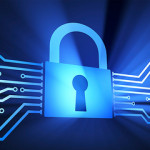 The internet is such an amazing invention that has helped to make connection with other people and learning about new things so much easier. But there is a negative side to the internet and that is the security threats lurking around the corner.
The internet is such an amazing invention that has helped to make connection with other people and learning about new things so much easier. But there is a negative side to the internet and that is the security threats lurking around the corner.
But keeping yourself safe online isn’t brain surgery and you can protect yourself with some very simple ways. Here are five simple ways you can lower the likelihood of getting hacked.
1. Change Your Passwords Often Enough
It is really important that you pay enough attention to your passwords. It is really important that you start using complex passwords that aren’t as easy to hack. You also want to use a different password for each site because this lowers the possibility of you getting hacked in multiple different accounts at once.
But as well as having the right kind of password it is also essential that you regularly change it. Majority of people just hang on to the same password for a long period, which really makes them vulnerable for an attack. It is a good idea to change your passwords every four months, for example.
2. Log Out
You also want to start logging out of your accounts when you stop using them or step away from your computer. Even though your computer and laptop might be safe from getting stolen, your account is still much easier to hack if you don’t log out. This is especially important when you are using a different internet connection, for instance while you are travelling.
3. Securing Your Wi-Fi
Wi-Fi networks are probably the easiest ways of accessing your computer and therefore it is really important that you use them securely. Make sure that your home or office Wi-Fi isn’t available for use without a password. Also in an office environment if you want to provide Wi-Fi for customers you need to make sure it is different from your business Wi-Fi.
There are some good tips for securing your Wi-Fi network in this PCWorld article. Make sure you take these tips on board and avoid using really sensitive accounts such as online banking when you are using a public Wi-Fi connection.
4. Stop Clicking Links You Don’t Know
Another very simple way of keeping safe from hackers is to stop clicking links in e-mails you don’t recognise. Plenty of hackers try to get you into giving sensitive information by asking you to go to a website and filling a form. Sometimes the links just download a malware programme onto your computer without you noticing it.
It is also worth keeping an eye on the links that people you know send you. If it looks like something your friend wouldn’t send you, don’t open it without contacting them first. It might just be that they have gotten hacked.
5. Don’t Download From Dodgy Sites
You also should stop downloading files from websites that look dodgy. Take a good look at the site and think carefully if you can trust the files you are about to download or not. Often your gut feeling can help you stay safer online.
Author: Steve Whitney is passionate about internet security and he likes finding secure web-hosting for businesses and private users. When he isn’t reading about the latest industry developments he likes to read mystery novels.